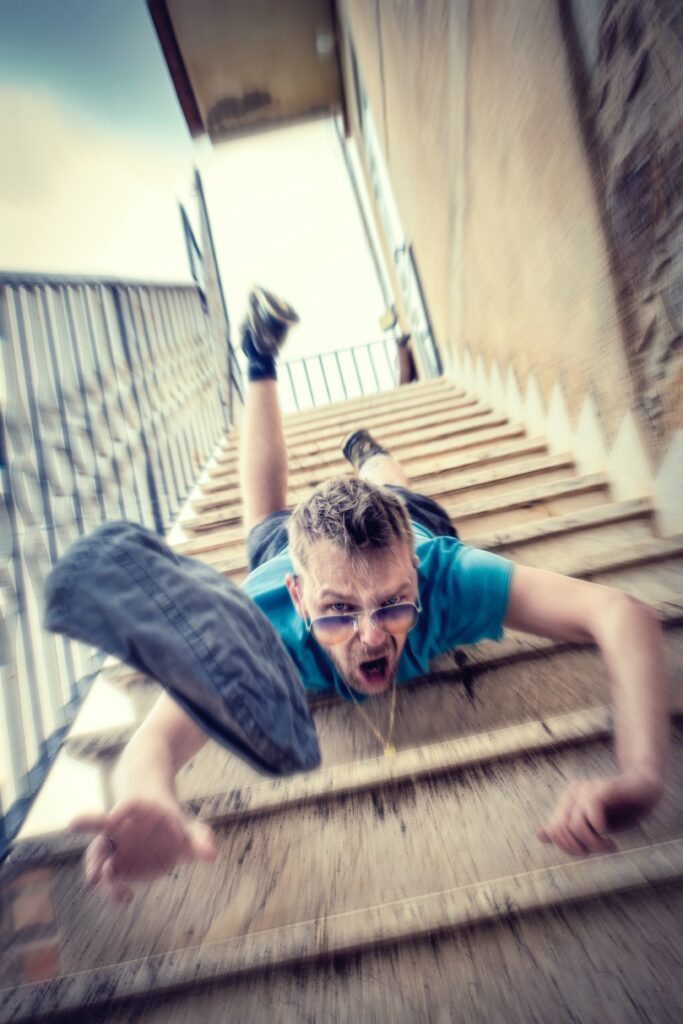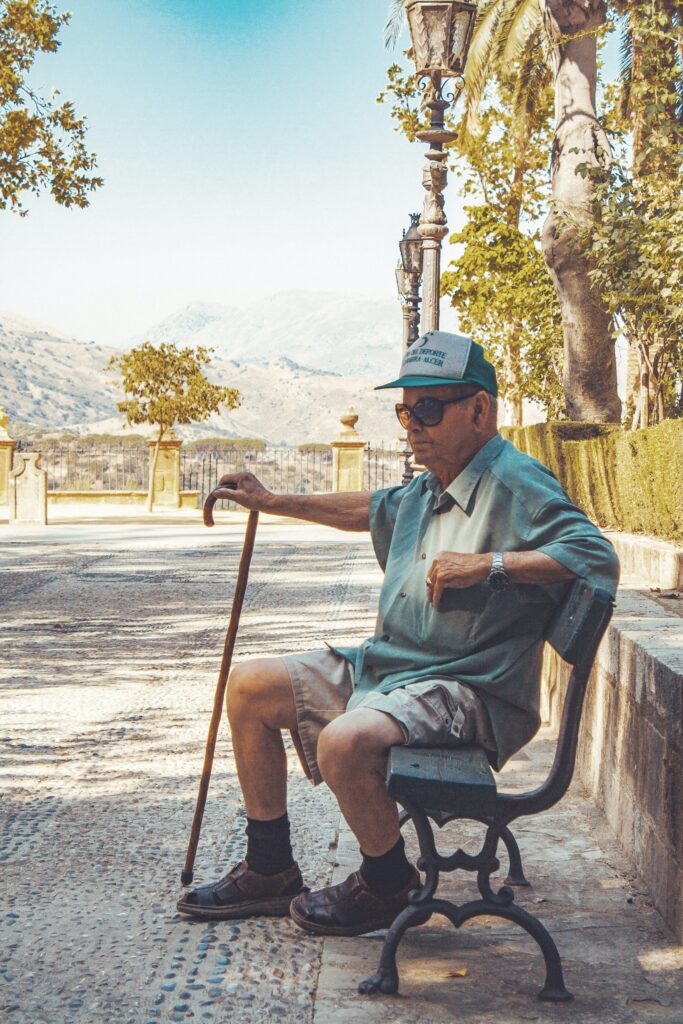I fell twice in one week recently.

I was in Oaxaca, Mexico, which has better sidewalks than lots of other places in the country. Nevertheless, I was walking past a crowded hospital with some groceries in my hand, and I got jostled just a little by some medical folks who were getting off of their day shift. My foot slipped into a deep gap in the sidewalk, and I fell on my knee. Hard. You don’t really realize how heavy your body is until you fall. My eyeglasses went flying, the groceries spilled out of the bag, and I heard several people say, “Ay!” A caring nurse tried to help me get up, but she probably weighed 90 pounds, and was soon helped by two others who managed to drag me to my feet.
I could walk, and I could tell that nothing was broken, so I got back to my Airbnb and assessed the damage. A skinned knee. Not too bad.
I had several thoughts run through my mind. I knew that falling is a big problem for the elderly. Every year, more than 3 million people over the age of 65 take a tumble. About a fifth of those falls cause serious injury — a head trauma or a broken bone. So my first thought was, am I one of those people now? The Center for Disease Control says there are a bunch of risk factors for falls:
- Lower body weakness
- Vitamin D deficiency (that is, not enough vitamin D in your system)
- Difficulties with walking and balance
- Use of medicines, such as tranquilizers, sedatives, or antidepressants. Even some over-the-counter medicines can affect balance and how steady you are on your feet.
- Vision problems
- Foot pain or poor footwear
(CDC, Facts about Falls)
I don’t think any of those things are factors for me, so I chalked it up to wrong place, wrong time. But the thoughts kept coming. I remembered that my Dad took a couple of really bad falls after he retired. One was falling off of a ladder that he never should have been on, but one was just missing a step in a restaurant. Is falling hereditary?

A couple nights later, I did something that I have never done as an adult. I fell out of bed. It’s such a shock to wake up by hitting the floor. This time, on the way down I must have smacked the bedframe with my foot, because I ended up with a bruised toe.
I’m beating myself up pretty well, don’t you think? In the ensuing days, I felt a few weird muscular aches that I didn’t recognize, and I’m giving credit to the falls for those, too. So far, the aches have passed, and the toe and the knee don’t bother me any more. The thoughts, on the other hand, have continued.
Everybody Falls

Not everyone falls the way that I did, thank goodness, and I hope you never do. But everybody falls, physically or metaphorically. Some people get fired. Others get demoted. People with objectively good positions in life have complained to me because they have fallen from their own expectations.
One might also fall from grace, by choosing the wrong path, fall out of love, or fall into a depression. You might get knocked off of a pedestal, fall for a scam, or fall into a trap. All of these falls cause pain of various kinds.
The ability to bounce back from all these stresses of life is called resilience. This is not an inherited trait — it’s something that you can learn and develop. There are a few things that you can do to directly build your level of resilience.
- Build your relationships
- Take care of your health
- Help others
- Learn from your past, and keep things in perspective.
- Seek help when you need it.
You may remember that some of these things were mentioned in my post on happiness. They are things that you can work on, and get better at them a little bit at a time.
One of the problems with falling is that a fear can develop that it will happen again. This is true in the elderly, who can develop reduced strength after a fall because they stop moving as much. The best way to resist this fear was stated long ago: When you fall off, you have to get back on the horse. Don’t make the same mistakes twice, but don’t give up, either. Take the path of resilience, and your quality of life will improve.


